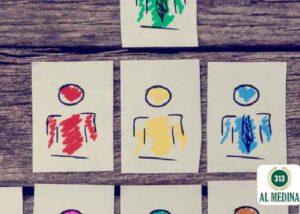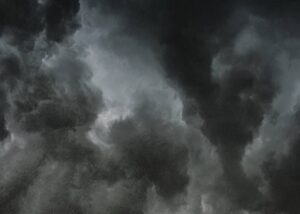Why do some people say scholars or Awliyaa have knowledge of the Ghayb (unseen). Isn’t this for Prophets alone?
Quran
Hadith
Islamic Text
People should not say scholars or Awliyaa have knowledge of the Ghayb (unseen), this is a clear error. It not only contradicts the Holy Quran but also blurs the line between Prophets (peace be upon them) and Awliyaa.
وَمَا كَانَ اللَّهُ لِيُطْلِعَكُمْ عَلَى الْغَيْبِ وَلَكِنَّ اللَّهَ يَجْتَبِي مِنْ رُسُلِهِ مَنْ يَشَاءُ فَآمِنُوا بِاللَّهِ وَرُسُلِهِ وَإِنْ تُؤْمِنُوا وَتَتَّقُوا فَلَكُمْ أَجْرٌ عَظِيمٌ
And Allah does not reveal the unseen to you, rather Allah selects from his Messengers whomsoever he wills. And if you believe and have Taqwa (piety) then you will have abundant reward. (Surah Ali Imran, 179).
The Holy Quran repeatedly informs us that knowledge of the unseen (Ghayb) is with Allah (Most High) alone. At times the Holy Quran clarifies that knowledge of the unseen (Ghayb) is given to the Messengers of Allah (Most High). However, there is nothing in the Holy Quran that extends this to other people.
Therefore, a scholar, Shaykh or Wali cannot claim knowledge of the unseen. Rather many classical scholars negated Ilm al-Ghayb (knowledge of the unseen) for anyone other than the Prophets (peace be upon them). Unfortunately, many Muslims are unaware of this and therefore are misguided.
وأما ظنُّ الغيب فلم يتعرَّض شيءٌ من الشرع لنفيِهِ ولا لإثباته؛ فقد يجوزُ أن يَظُنَّ المنجِّمُ – أو صاحبُ خَطِّ الرَّملِ، أو نحو هذا – شيئًا مما يقعُ في المستقبل، فَيَقَعَ على ما ظنّه؛ فيكونُ ذلك ظنًّا صادقًا، إذا كان عن مُوجِبٍ عاديٍّ يقتضي ذلك الظَّنَّ، وليس بِعِلمٍ، فيفهم هذا منه؛ فإنَّه موضعٌ غَلِطَ بسببه رجال، وأُكِلَت به أموال، ثم اعلم أنّ أَخذَ الأجرةِ والجُعلِ على ادِّعَاءِ عِلمِ الغيبِ أو ظَنِّهِ لا يجوزُ بالإجماع؛ على ما حكاه أبو عُمَرَ بنُ عبدِ البَرِّ. (المفهم لما أشكل من تلخيص كتاب مسلم)
As for speculating regarding the unseen, the Sharia has not negated it nor affirmed it. It is possible for an astrologer, one who draws lines in the sand or the like of them to speculate regarding something in the future and it occurs in accordance with his speculation. Therefore it was speculation confirmed if it was on the basis of conventional cause dictating it. However, it is not knowledge. This must be understood regarding it. Indeed this is an area in which many people have erred, and much wealth has been usurped as a result of it. Know that taking money and contributions upon a claim of knowledge of the unseen or speculation regarding it, is not permitted by consensus (Ijma). This is according to what was narrated by Abu Amr Ibn Abd al-Barr. (Imam Abu al-Abbas al-Qurtubi, al-Mufhim).
It is important to note that this is not a denial of Karamaat of the Awliyaa. Rather they should be affirmed (see the link below for details). However, Karamaat do not usually take the form of predicting the future.
فلا يظهر الله على غيبه إظهارًا تامًّا وكشفًا جليًّا إلا من ارتضى من رسول، فإن الله تعالى إذا أراد أن يطلع النبي -صَلَّى اللَّهُ عَلَيْهِ وَسَلَّمَ- الغيب يوحي إليه أو يرسل إليه الملك. وأما كرامات الأولياء فهي من قبيل التلويحات واللمحات أو من جنس إجابة دعوة وصدق فراسة فإن كشف الأولياء غير تام كالأنبياء. (إرشاد الساري لشرح صحيح البخاري)
The knower of the unseen, He (Most High) does not make the unseen apparent to anyone. (Meaning) absolutely apparent and completely unveiled. Except whom he is pleased with from the Messengers. For indeed if Allah Most High wills to inform the Prophet ﷺ about the unseen (Ghayb) then He (Most High) reveals it to him or sends an angel.
As for the Karamaat of the Awliyaa, they are indications and glimpses. The acceptance of a Dua or Firaasah that is proven true. For indeed Kashf for Awliyaa is not complete like it is for Ambiyaa. (Imam Shihab al-Deen al-Qastalani, Irshaad al-Sari Sharh Sahih al-Bukhari).
In the rare occasion that Karamaat do take the form of predictions, then they cannot be confirmed until after the event. This is one of several differences between a Prophet predicting the future and someone else doing it. With a Prophet, we will accept it as fact immediately. With other people we will wait to see, if what they saw in a dream transpires then we will retrospectively consider it to be a true dream.
وَمَا ذَكَرَهُ بَعْضُ الْأَوْلِيَاءِ مِنْ بَابِ الْكَرَامَةِ بِأَخْبَارِ بَعْضِ الْجُزْئِيَّاتِ مِنْ مَضْمُونِ كُلِّيَّاتِ الْآيَةِ، فَلَعَلَّهُ بِطَرِيقِ الْمُكَاشَفَةِ أَوِ الْإِلْهَامِ أَوِ الْمَنَامِ الَّتِي هِيَ ظَنِّيَّاتٌ لَا تُسَمَّى عُلُومًا يَقِينَيَّاتٍ. (مرقاة المفاتيح شرح مشكاة المصابيح)
As for that which was mentioned by some Awliyaa as Karamaat, speaking about some aspects of the generality of the Ayah (Surah Jinn, 26). Then that may be through Kashf, Ilham or a dream. All of which is from the Dhanni (speculative) and cannot be referred to as certain knowledge. (Imam Ali al-Qari, Mirqaat al-Mafateeh).
نقول: الحاصل لهم ظن لَا علم. (تفسير ابن عرفة)
We say, in conclusion they (the Awliyaa) have conjecture (Dhann) and do not have knowledge (Ilm). (Imam Abu Abdillah Ibn Arafah, Tafseer Ibn Arafah).
Even when a person’s vision is confirmed by occurring. He or she must be careful. It is not definitively a Karaamah. Rather it could be a test. As mentioned by Imam Ibn Hajr in his commentary on Sahih al-Bukhari.
وَقَالَ أَبُو بَكْرِ بْنُ فُورَكَ الْأَنْبِيَاءُ مَأْمُورُونَ بِإِظْهَارِهَا وَالْوَلِيُّ يَجِبُ عَلَيْهِ إِخْفَاؤُهَا وَالنَّبِيُّ يَدَّعِي ذَلِكَ بِمَا يَقْطَعُ بِهِ بِخِلَافِ الْوَلِيِّ فَإِنَّهُ لَا يَأْمَنُ الِاسْتِدْرَاجَ. (فتح الباري شرح صحيح البخاري)
Abu Bakr ibn Furak said the Prophets are commanded to make them (miracles) manifest. Whilst the Wali is obliged to hide them (Karamaat). The Prophet claims it (a miracle) in a definitive (Qati) manner, as opposed to the Wali. Since he (the Wali) cannot be sure that this is not a test (rather than being a Karaamah). (Imam Ibn Hajr al-Asqalani, Fath al-Bari Sharh Sahih al-Bukhari).
لأن اطلاع الأنبياء يكون بالوحي، وهو معصوم من كل نقص، بخلاف اطلاع الأولياء. (حاشية الصاوي على تفسير الجلالين)
This is because the knowledge of the Prophets (peace be upon them) is through revelation. Therefore, it is protected from any deficiency. This is not the case for the Awliyaa. (Imam Ahmad bin Muhammad al-Saawi, Haashiyah ala Tafseer al-Jalaalayn).
The fact at scholars and Awliyaa do not have knowledge of the unseen should be well known. Not only is this clear in the Holy Quran and statements of numerous classical scholars, but it is also known to be one of the issues of difference between Ahl al-Sunnah and the Shia. Some of the Shia claim the Imams have knowledge of the unseen and the Ahl al-Sunnah have always rejected this claim.
And Allah Most High Knows Best.
-Answered by Shaykh Noorud-deen Rashid (24.09.2022)
See also:
Do we believe in Karamaat
Difference between Prophets speaking about Ghayb and Awliya
See also video:






